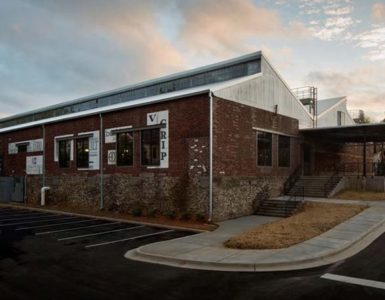After meeting Chris and Tony for an incredible brunch (shrimp fried rice, eggs benedict, roast beef, made-to-order omlettes, cinnamon cake, flapjacks, Thai spicy noodles, and more), we spend the late morning browsing neighborhood shops.
We take in the local production of The Producers. Mel Brooks’ multi-award-winning show draws its humor in the broadest possible strokes: main characters with bulging eyes and expansive nervous tics, little old ladies who Riverdance with their walkers, leggy blondes who stand eight feet tall, and giddy homosexual Nazis who twinkle across the stage during a segment called Springtime for Hitler.
It’s a crowd-pleaser, right down to musical numbers that always end with a bang so that even the dullest theatre-goer will know when to clap. And, to be fair, it works. By the end, I’m up on my feet with the rest of the Sunday matinee attendees, shouting and applauding.
A brisk walk, a good Japanese dinner, and a few minutes later, we buy tickets to see Gus van Sant’s new movie — though it can only loosely be called that — Elephant. The film concerns a Columbine-like incident in which two teens gun down fellow classmates and school officials. The twist: with a few exceptions, the show focuses on the tiny slice of time — about ten minutes — that it takes for the attack to begin and end.
The result: we live through the same ten minutes again and again, from multiple perspectives — like blind men examining different parts of an elephant in order to attain a comparative understanding of the whole.
Before we catch on to the director’s intention, though, we find ourselves squirming in our seats: an early sequence, for example, follows one young man’s walk from the football field, through the school, past his friends, and into the office. The point? To show us the length of time it takes for the movie’s key incident — the shooting — to unfold.
Partly to impart an eerie, “watch over your shoulders” feeling to the audience and partly to imitate the point of view of first-person shooter games like DOOM, van Sant also chooses to shoot most of the film with a steady-cam. He walks behind his actors — by the end of the movie, we are intimately familiar with the back of their heads.
The result is an uneven success. Critics love it, in the way that critics often love quirky, avant-garde approaches to storytelling. In our theatre, most of the relatively sophisticated crowd expresses noisy disbelief at the sudden and unresolved ending.
On the short walk back to the hotel, Clyde and I put all the pieces together … but, in the end, Elephant seems to be a movie that deliberates avoids making sense as a way of suggesting that school violence makes little sense.
Did we need eighty-five minutes of incoherent editing to drive that point home?


Add comment